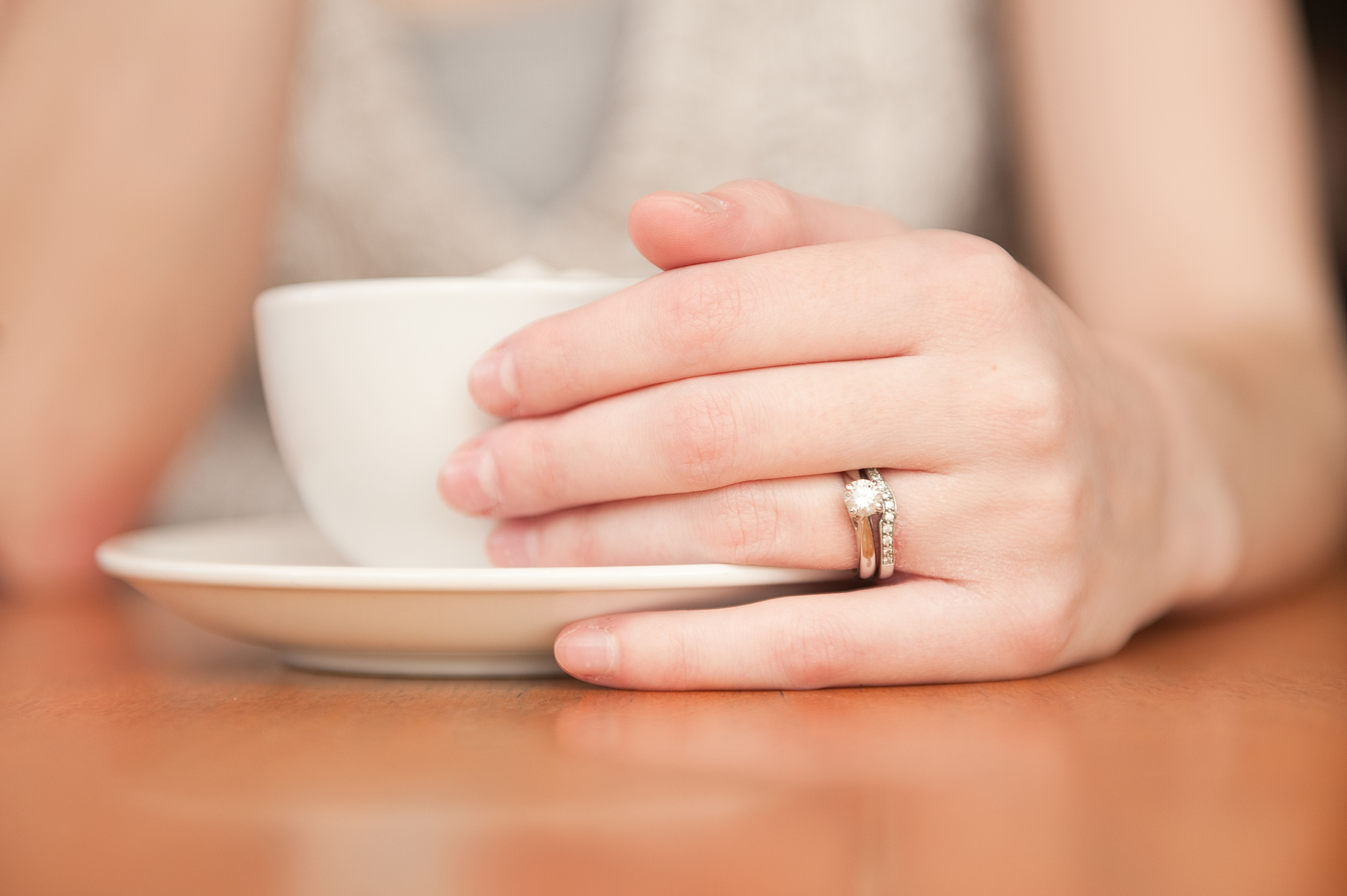I kept my maiden name. It was one of the best decisions I've ever made.
Names are incredibly personal, and I just didn't want to let go of mine


A free daily email with the biggest news stories of the day – and the best features from TheWeek.com
You are now subscribed
Your newsletter sign-up was successful
Shortly before I got married in September 2016, an old friend texted me. She was getting ready to send out baby shower invitations, and wanted to know what last name to use for mine.
"Same as always," I replied.
"But what will it be after you get married?"
The Week
Escape your echo chamber. Get the facts behind the news, plus analysis from multiple perspectives.

Sign up for The Week's Free Newsletters
From our morning news briefing to a weekly Good News Newsletter, get the best of The Week delivered directly to your inbox.
From our morning news briefing to a weekly Good News Newsletter, get the best of The Week delivered directly to your inbox.
"The same."
"You're not changing it?"
"Nope."
"How feminist of you!" she replied with a smiley face.
A free daily email with the biggest news stories of the day – and the best features from TheWeek.com
It was a variation of a conversation I'd been having for months, one that still crops up occasionally. There were the friends updating their address books, the work colleagues updating our email system, the wedding vendors and distant relatives sending us packages addressed to "Mr. and Mrs."
For the most part, the assumptions don't bother me. I just correct the record, and folks nod and smile. But each time, I take the implicit point. Well into the 21st century, a married woman keeping her name is still seen as a political statement, a bucking of the norm.
Our culture has some sticky expectations around women, weddings, and identity. One of them is that every family needs a unified name, and in a heterosexual partnership, the default family name is the man's. Thus, the onus is on the woman to change her name to suit.
I'd be lying if I said this didn't factor into my thinking. I'm a bit of a contrarian, and I wanted to push back against the expectations hanging over me as a bride. But at its core, my decision boils down to something much more instinctive. Names are incredibly personal, and I just didn't want to let go of mine.
By the time I got married, I'd spent nearly 30 years building an identity attached to my name. It's the first thing many people learn about me, one of the main ways I distinguish myself from all the other Zoes out there. It's part of my close, loving connection to my family of origin. It's the source of that deep thrill I get as a writer, seeing my name next to my words in print.
The thought of suddenly acquiring a new name — not because I wanted to, but because tradition dictates that I should — hit me like a blow to the stomach. Each time someone asked me what my new name would be, I pictured some phantom woman with my first name and my husband's last. I imagined stepping into her skin, leaving my old skin behind, and felt a rush of sadness and loss. Then I returned to my name, let it settle back over my bones, and knew I was making the right choice for me.
I'm fortunate to have had relatively little pushback. In the Bay Area, where I live, women keeping their names upon marriage seems increasingly common, if not exactly the norm. I'm far from the only married woman in my peer group to hang on to her name.
And, perhaps most importantly, my husband and I had role models from the very beginning. My mother kept her name, and so did my mother-in-law. Having grown up with the utterly normal notion that Mom and Dad had different last names, neither he nor I felt any need for a unified family label.
I'd thought that my mother might have felt a bit more pressure when she chose to keep her name in 1981. But when I called her to talk about it, it turned out her decision was as instinctive and emotional as mine. "Think of the things that identify you as who you are," she said. "One of them is names. Why would I give up a name that I've had all my life? I just wanted to continue being who I was."
She also pounced on one of our culture's most insidious lies: that if a marrying woman chooses to keep her name, it means she's not truly committed to the marriage itself. "It has nothing to do with permanence or non-permanence," she told me, vehemently. "When I got together with your dad, I knew I was going to be with him for the rest of my life." Indeed, the two of them have been happily married for nearly 40 years, a track record I'm hoping to emulate in my own marriage.
The only area that presented any complexity, we agreed, is what names to give children. This is where the default of the man's name offers an easy out. My in-laws took this route, and my parents slightly modified it by adding my mother's last name as a middle name. I've known parents who chose portmanteau last names, others who hyphenated, and still others who gave their children two sequential last names. It's an area where our culture offers precious little guidance, and an illustration of what happens when individual choices run up against an entrenched system.
Let me be clear: I do not begrudge anyone the choice to change their name upon marriage. It is — and should be — a deeply personal decision. But the personal is also political, and we cannot ignore the pressure that women face to change their names, whether or not they want to. When we turn "women" into "brides," we expect them to shift their identity, to glow with happiness and wear white dresses and take on new names that they'll then give their children.
But for me, getting married didn't change my identity; it just added another sparkling facet of who I already am. As my mother says, "Marriage should be something that enhances and expands you, not detracts from who you are."
I'm so happy to be married to my husband, and even happier that I got to keep my name at the same time. Cultures do evolve, and I hope that we are approaching a point where a woman keeping her name is just as unremarkable as changing it.
Zoe Fenson is a freelance writer based in the San Francisco Bay Area. Her writing has appeared in Longreads, Narratively, The New Republic, and elsewhere. When she's not writing, you'll find her doing crossword puzzles in cocktail bars or playing fetch with her cat.
